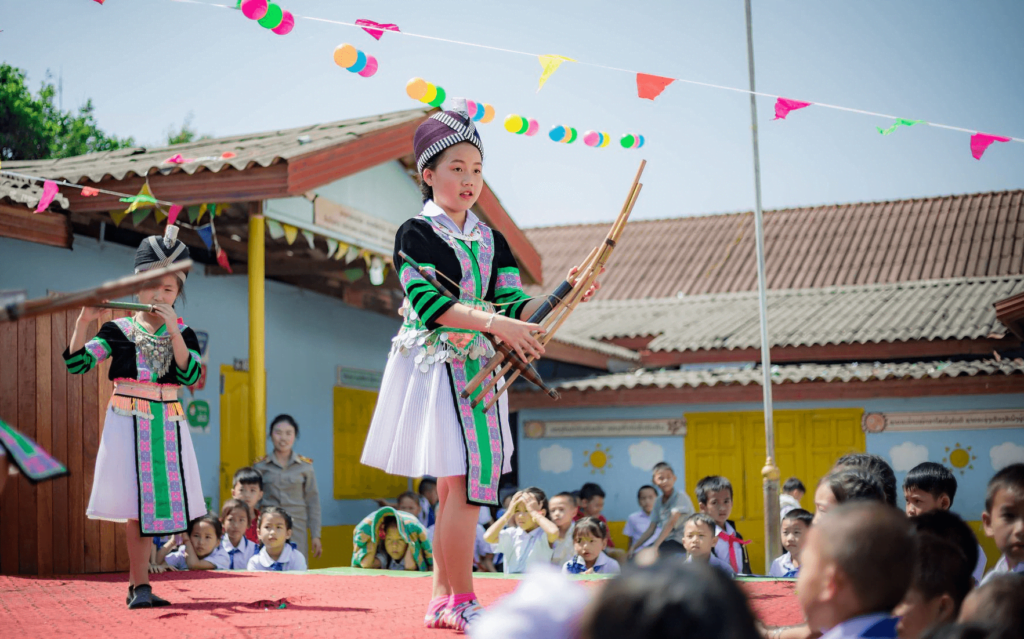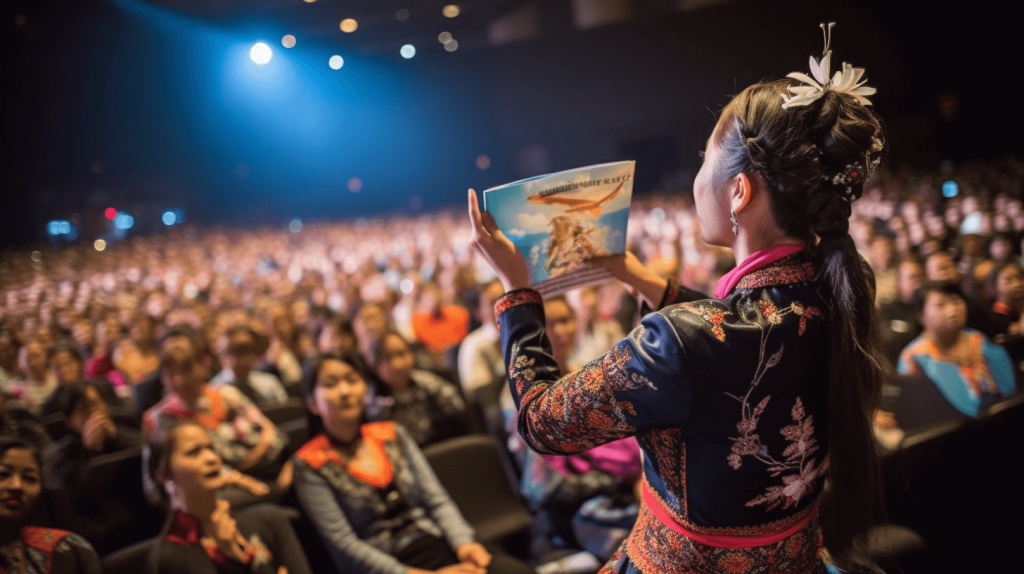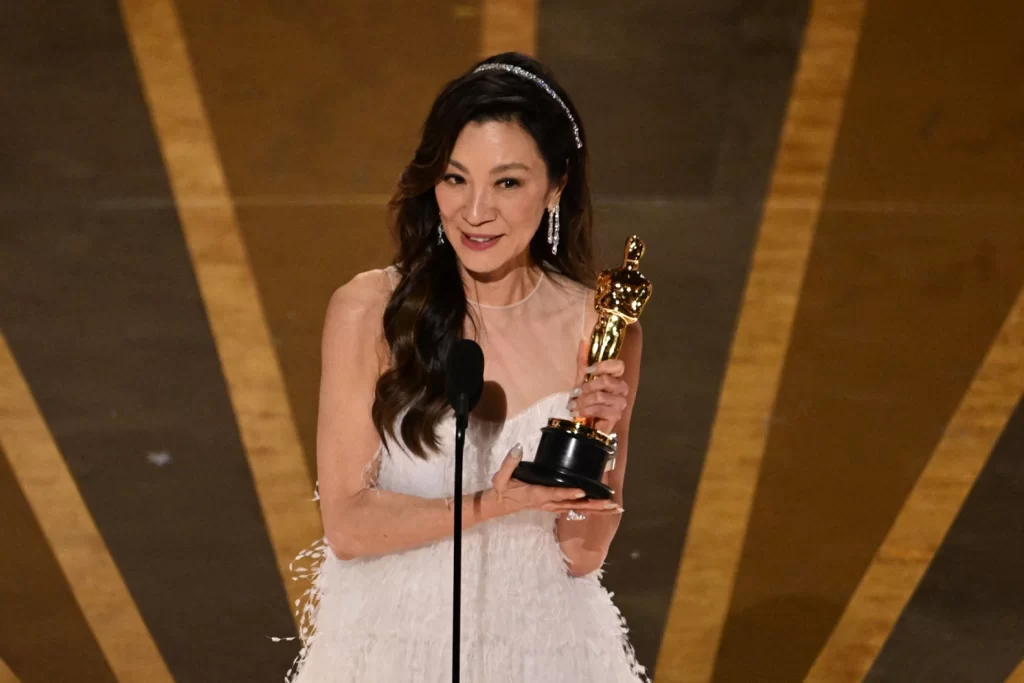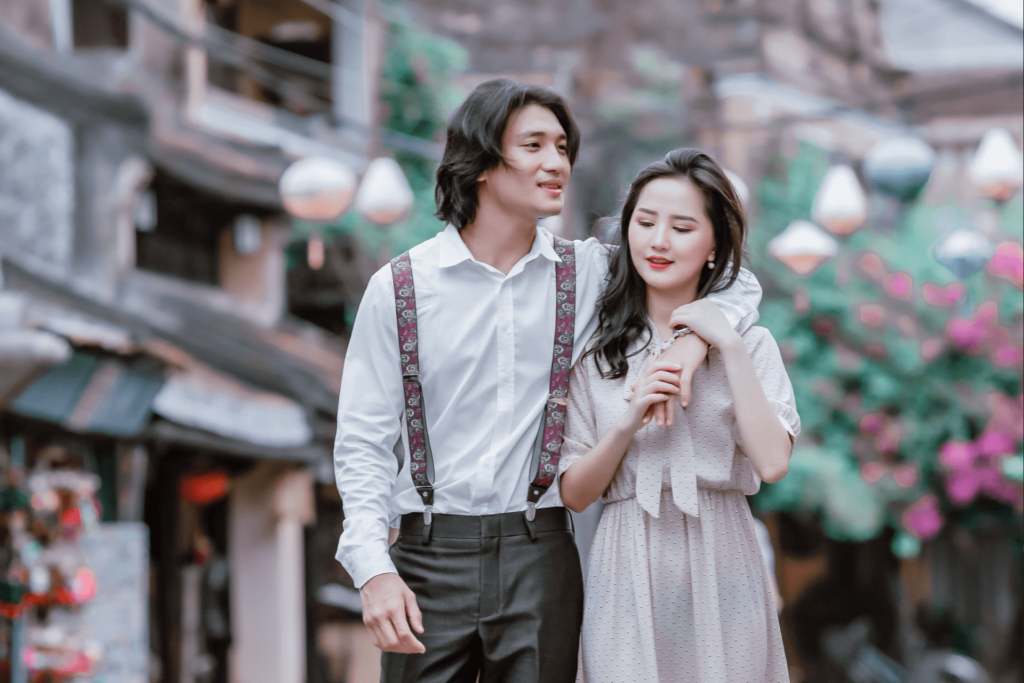
Unveiling the Unseen: A Filmmaker’s Journey into Hmong Shamanism and Identity
In the heart of a shaman’s ritual, Joua Lee Grande, a budding filmmaker, relinquished her camera to her brother. Positioned before the altar, clad in ceremonial bells and a somber veil, she grappled with a feeling of fraudulence. The shaman’s gong resonated, seeking to evoke her spirit guides, but she remained steady. Unbelieving in spirits, Joua was startled when the shaman declared her chosen to be a Hmong shaman herself.
Years later, now a seasoned filmmaker, she revisited the shaky footage from that moment, using it as material for her documentary “Spirited.” The film chronicles Joua’s quest to reconnect with Hmong shamanism and confront the challenges plaguing her community. As the director, producer, and main subject, she contemplates a crucial decision: to embrace her calling as a shaman or turn away.
Joua’s childhood memories were filled with the bustling houses, the tantalizing aroma of cooked food, and the sound of the shaman’s gong during healing rituals. Hmong shamans act as spiritual healers, bridging the physical and spirit worlds in a belief system rooted in animism and ancestor reverence.
Growing up in a tight-knit Hmong refugee community, Joua’s understanding of the world was shaped by her father’s collection of books and documentaries. She turned her documentary skills toward revealing untold stories misrepresented in the media. Her mission was to be a storyteller for the unheard voices.
In her 20s, her mother’s revelation that she was identified as a shaman didn’t resonate at first. Despite her upbringing in Hmong spirituality, she felt disconnected due to limited teachings. But persistent illnesses prompted her mother to reconsider. An affliction often marks a potential shaman, and a confirming shaman pushed Joua to take a “shake test” for her calling.
Although she didn’t believe in spirits, Joua agreed to the test for her mother and her film project. Upon confirmation, she embarked on the path of a shaman. However, her anger at the oppression of women within Hmong spirituality led her to distance herself from both shamanism and her documentary for five years.
Witnessing the harm caused by patriarchal violence in her community reignited Joua’s contemplation. Her marriage to Brian Grande further fueled her interest in spirituality, despite Hmong elders asserting she was automatically Christian. A knee injury treated by a shaman stirred a newfound reverence for the communal aspect of Hmong spirituality.
“Spirited” intertwines Joua’s journey with narratives of Hmong shamans reclaiming their traditions. Among them is Billy Lor, a master shaman advocating for an inclusive approach. He challenges the binary nature of Hmong culture, asserting that spirits and souls are nonbinary, encompassing both genders and the universe.
The documentary is a work in progress, reflecting Joua’s uncertainty about her eventual decision. As a filmmaker, she envisions a cinematic ending where she embraces her shamanic calling. Yet, she acknowledges that life doesn’t always mirror the movies. The documentary’s release is anticipated within a couple of years, and Joua has realized that it’s more about her quest for community and belonging than the singular choice to become a shaman.









Responses